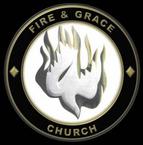FIRE & GRACE HOMESCHOOL
"Train up a child in the way he should go:
and when he is old, he will not depart from it."
Proverbs 22:6
Dear Home School Educator,
God bless!
Nancy Odle
Nancy Odle
Homeschool Administrator
ALABAMA HOMESCHOOL LAW
In Alabama, there are three options under which you can legally homeschool. Note that church schools and private schools can establish their own policies for teacher qualification, days of instruction, and required school subjects.
Here are the options:
Option 1: Homeschooling with a church school
A church school offers instruction in grades K–12 or any combination thereof, including preschool, through onsite or home programs, and is operated as a ministry of a local church, group of churches, denomination, and/or association of churches that does not receive any state or federal funding. A home may be the location where a child receives instruction as a student attending a church school.
To homeschool under this option, you must take the following steps:
1. Enroll your child in a church school.
The Christian Home Education Fellowship (CHEF) of Alabama has compiled a list of church schools that enroll homeschool students. That list is available on CHEF’s website here. Before you enroll your child in a church school, call the school office or browse its website to become familiar with its homeschool policy and to get answers to any questions you may have about fees, enrollment deadlines, etc.
2. File a church school enrollment certificate.
When your child is first enrolled in a church school, you must notify the superintendent of your local public school by filing a church school enrollment form. The church school administrator may assist you in obtaining this form. This form must be signed by a parent or legal guardian and by the church school administrator. There is no requirement to file annually.
3. Keep an attendance register.
The principal teacher of the church school must keep an attendance register for every school day of the year.
4. Comply with any policies established by the church school.
Some church schools have policies regarding teacher qualification, number of days of instruction, and required subjects. If so, you are responsible to comply with them.
Option 2: Homeschooling with a private school
A private school is established, conducted, and supported by a nongovernmental entity or agency offering educational instruction in grades K–12 or any combination thereof, including preschool, through onsite or home programs. A home may be the location where a child receives instruction as a student attending a private school. A parent may establish a home-based private school, or the home may be an extension of an existing private school.
1. Notify your local superintendent.
Five days after the start of public school, your private school must report to the county or city superintendent the names and addresses of all school-age children enrolled in the school. Thereafter, your private school must report the names and addresses of all school-age children (1) who enroll in the school, or (2) who are absent without a lawful excuse on a weekly basis, if applicable. Private school enrollment and absence reporting forms for HSLDA members are available below.
2. Keep an attendance register.
The principal teacher of a private school must keep an attendance register for every school day of the year.
3. Obtain proof of immunization.
Private schools must require their students to show proof of immunization, or medical or religious exemptions from immunization.
4. Teach Physical Education.
Private schools must include a good faith program of physical education.
Option 3: Homeschooling using a private tutor
1. Select a private tutor with the required qualifications.
Private tutors must be Alabama-certified teachers.
2. Ensure that your child is instructed in the required subjects and for the required number of days.
A private tutor’s instruction must be in English and must include the same branches of study that are required to be taught in the public schools. The tutor must teach for at least three hours a day, for 140 days each calendar year, between the hours of 8:00 a.m. and 4:00 p.m.
3. The private tutor must comply with reporting and recordkeeping requirements.
The private tutor must submit a statement to the county or city superintendent, listing the tutor’s students, the subjects taught, and the proposed tutoring schedule. The tutor must also keep a register of work, showing daily the hours of instruction, and of attendance (including absences). The tutor must also make such reports as the State Board of Education may require.
Taken from https://hslda.org/post/how-to-comply-with-alabamas-homeschool-law
